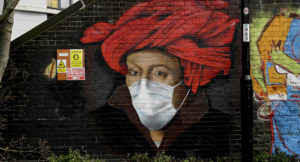Addressing 13 COVID-19 vaccine myths.
Of all the modern medical interventions we have at our disposal, few have been victim to as much falsehood as vaccines. As the world battles a pandemic, stripping the truth from the lies is more urgent than ever.
According to the World Health Organization (WHO), between 2010 and 2015, vaccines prevented an estimated 10 million deaths.
Scientists have worked tirelessly to create safe and effective vaccines to protect us against SARS-CoV-2. Now, as many governments roll out COVID-19 vaccines, scientists and medical experts are facing a new challenge: misinformation and associated vaccine hesitancy.
Some anti-vaxxers — individuals who believe vaccines cause a range of medical ills — dedicate their entire lives to railing against vaccines. In reality, vaccines have saved lives of millions of people.
Vaccine hesitancy is nothing new and, in many ways, perfectly reasonable. For instance, misinformation about the vaccines’ safety and potential effects on the body is rife on the internet. Also, the COVID-19 vaccines were developed unusually swiftly and use relatively new technology.
In this article, we will tackle these concerns head on.
Today, a significant percentage of the United States population, and the world at large, are nervous to take a shot that could save their lives.
In this article, we tackle some of the most common myths associated with the COVID-19 vaccines. Although it will not convince dyed-in-the-wool anti-vaxxers, we hope that this information will prove useful for those who are hesitant. We will cover the following myths:
The vaccines are not safe, because they were developed so fast
The vaccine will alter my DNA
COVID-19 vaccines can give you COVID-19
The vaccine contains a microchip
COVID-19 vaccines can make you infertile
COVID-19 vaccines contain fetal tissue
People who have had COVID-19 do not need the vaccine
After receiving the vaccine, you cannot transmit the virus
Once I have been vaccinated, I can resume a normal life
The vaccine will protect against COVID-19 for life
People with preexisting conditions cannot take the vaccine
People with compromised immune systems cannot have the vaccine
Older adults cannot have the vaccine
Article highlights:
People who have had COVID-19 do not need the vaccine.
Even people who have tested positive for SARS-CoV-2 in the past should be vaccinated. As the Centers for Disease Control and Prevention (CDC) write:
“Due to the severe health risks associated with COVID-19 and the fact that reinfection with COVID-19 is possible, [a] vaccine should be offered to you regardless of whether you already had [a SARS-CoV-2] infection.”
There is also a chance that the initial test produced a false positive — in other words, the test was positive, but there was no viral infection. For this reason, it is better to err on the side of caution.




